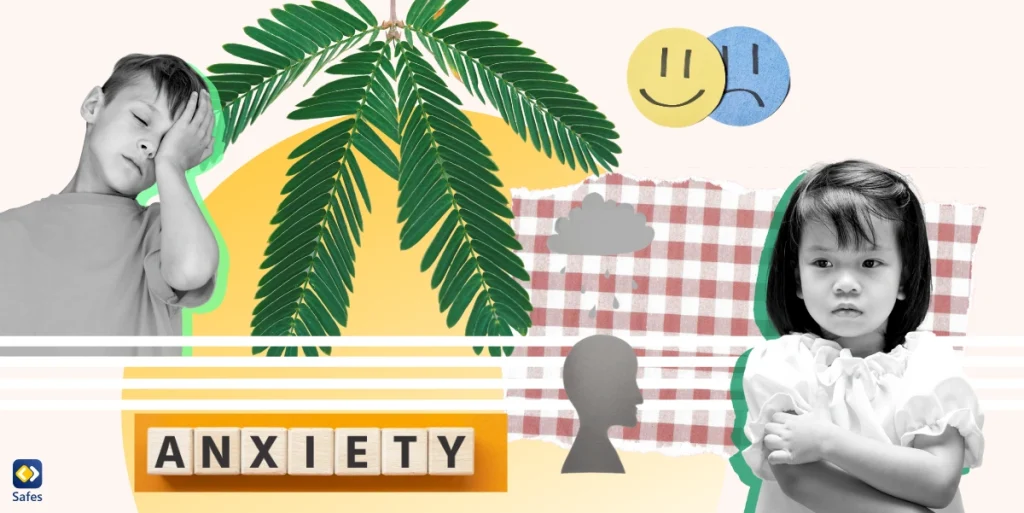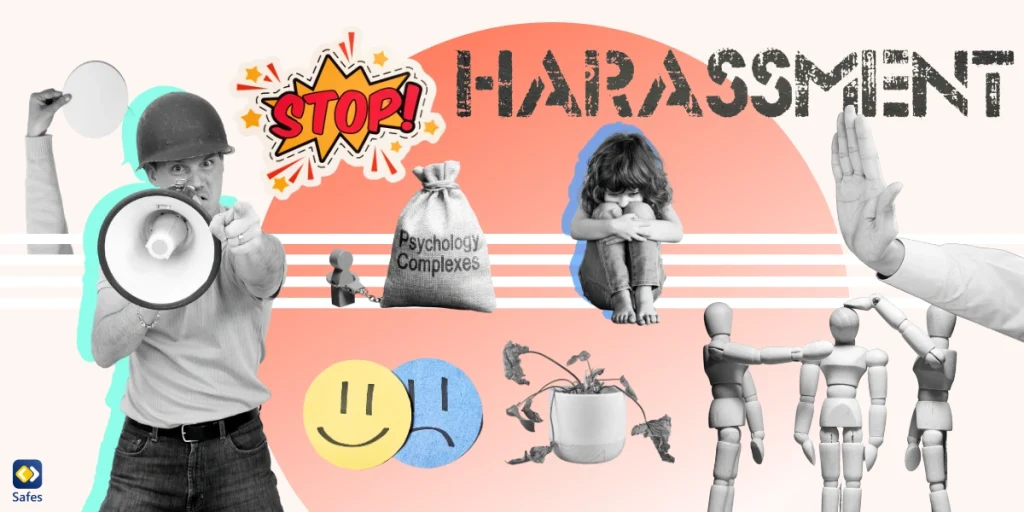Highly sensitive children (HSCs) are unique individuals with heightened sensory awareness and emotional sensitivity. Recognizing and catering to their distinct needs is essential for their well-being in various aspects of life, including education, social interactions, and emotional stability. Understanding their sensitivity can lead to happier, more confident, and well-adjusted children.
Download and Start Your Free Trial of the Safes Parental Control App
Recognizing Highly Sensitive Children: Signs and Symptoms
Common signs and behaviors can include:
- Strong Emotional Reactions: HSCs react intensely to both positive and negative emotions.
- Sensitivity to Sensory Input: They are highly sensitive to sensory stimuli, such as bright lights, loud noises, scratchy clothing, or strong odors.
- Overwhelm in New Environments: HSCs may feel overwhelmed in new or unfamiliar environments.
- Need for Quiet Time: They require regular periods of solitude or quiet to recharge.
- Empathy and Compassion: Highly sensitive children tend to be empathetic and compassionate.
- Caution in Decision-Making: They may take their time to make decisions, considering all options and potential outcomes.
- Strong Sense of Justice: They often have a strong sense of fairness.
- Intuitive Insights: HSCs may notice subtle details that others overlook.
- Preference for Close Relationships: They thrive in close, nurturing relationships.
Recognizing these signs and behaviors can help parents identify HSCs in their own children and engage professionals to provide the support and understanding they need.
Understanding the Challenges Faced by HSCs
Highly sensitive children often face specific challenges related to their heightened sensitivity, such as overstimulation and anxiety, impacting their daily lives.
- Overstimulation: HSCs are more prone to becoming overstimulated by sensory input, leading to stress or discomfort.
- Anxiety: Their heightened emotional sensitivity makes them more susceptible to anxiety, particularly fear of criticism, failure, or social rejection.
Impact on Daily Lives
Heightened emotional sensitivity can influence children’s lives in different ways:
- School Performance: Overstimulation and anxiety can affect their concentration and performance in a traditional classroom setting.
- Social Interactions: They may struggle with larger, noisy social groups and prefer smaller, more comfortable settings.
- Emotional Well-being: Constant overstimulation and anxiety can lead to emotional exhaustion and decreased overall well-being.
By understanding the challenges emotionally sensitive children face, parents, teachers, and caregivers can adjust and provide the appropriate support and accommodations needed.

Practical Strategies for Parenting Highly Sensitive Children
Supporting and nurturing highly sensitive children requires understanding and tailored parenting strategies. Here are some actionable tips:
- Validate Their Feelings: Actively listen to their emotions and let them know their feelings are valid.
- Effective Communication: Encourage open and honest communication, using active listening techniques.
- Empathy and Understanding: Try to see situations from their perspective and teach them about empathy.
- Set Clear Boundaries: Establish consistent and age-appropriate rules and boundaries.
- Create a Calming Environment: Designate a quiet and peaceful space in your home for them.
- Manage Screen Time: Use parental control apps to set screen time limits and encourage a balance of activities.
- Develop Coping Strategies: Teach healthy coping mechanisms for managing stress or anxiety.
- Support Social Relationships: Help them build positive social connections and teach social skills.
- Celebrate Their Strengths: Recognize and celebrate their unique qualities and strengths associated with their sensitivity.
- Seek Professional Guidance: Consult a child psychologist or counselor whenever needed.
Every child is unique, and consistent empathy, patience, and support are crucial in helping them thrive.
The Importance of Balance: Screen Time and Sensitivity
Excessive screen time can impact the sensitivity of highly sensitive children, exacerbating challenges they face.
Impact of Excessive Screen Time
Excessive screen time can have several effects on your emotionally sensitive child:
- Overstimulation: Excessive screen time can overwhelm their senses and increase stress and anxiety.
- Emotional Sensitivity: Exposure to unsuitable online content can trigger heightened emotional responses.
- Social Isolation: Excessive screen time can limit face-to-face social interactions.
Guidelines for Healthy Screen Time Management
To maintain a healthy screen time balance for your emotional child, set these guidelines for proper screen time management:
- Set Clear Limits: Establish daily or weekly screen time limits appropriate for their age.
- Designate Screen-Free Zones: Create areas in your home where screens are not allowed.
- Prioritize Quality Content: Encourage engagement with educational and age-appropriate content.
- Balance Passive and Active Screen Time: Encourage interactive activities over passive consumption.
- Regular Breaks: Ensure they take breaks from screens to reduce eye strain.
Role of Parental Control Apps
Parental control apps are digital tools designed to assist parents in managing and monitoring their children’s online activities. These apps can create a safe and nurturing digital environment for HSCs, who are more susceptible to the content they encounter online. Parental control apps can enforce healthy screen time management by offering features such as screen time limits, content filtering, and content monitoring.
Windows and MacBook’s built-in parental controls provide partial protection for your children’s screen time. However, for comprehensive online safety across various devices, such as Android and iOS, consider installing Safes parental control software. Experience full-spectrum digital protection with Safes. Sign up for a free trial today to enhance your child’s online safety.

Seeking Professional Help and Resources
Remember you’re not alone, seek professional guidance and access resources to help your emotional child better and take pressure off your parenting. We’ve collected some resources for you to use:
Professional Guidance
Don’t hesitate to reach out to a professional; they have received specialized training to assist parents dealing with various challenges their children may be facing.
- Pediatricians: Consult knowledgeable pediatricians about your child’s unique needs.
- Child Psychologists: Seek therapists experienced in working with HSCs for tailored support.
Recommended Books and Articles
To learn how you can support your highly sensitive child, you can make use of books and articles:
- “The Highly Sensitive Child” by Elaine N. Aron, Ph.D.
- How to Support Your Highly Sensitive Child
Support Groups
Support groups contain parents who are facing the same challenges as you. Here you can share what works for you and use other’s experiences.
- Local Parenting Groups: Connect with local groups focusing on HSCs.
- Online Parenting Communities: Join online communities for shared experiences and support.
- Parents of Highly Sensitive Children Facebook Group
- My Highly Sensitive Child Facebook Community
Online Resources
With the highly accessible online resources, you can educate yourself with relevant information.
- The Highly Sensitive Person (HSP) website by Dr. Elaine Aron
- Parenting for Brain on Highly Sensitive Children
Conclusion
In conclusion, recognizing and nurturing highly sensitive children is essential for their well-being. Parental control apps can assist in managing screen time and online content exposure. Above all, embrace their sensitivity and provide the support they need to thrive in an overwhelming world. Keep in mind to not label your children as an emotionally fragile child or an overly emotional child, whether in front of them or behind their back. It’s important to stay patient and open for conversations and don’t hesitate to ask professionals for help.
Frequently Asked Questions
Let’s look at some of the frequently asked questions on parenting sensitive children:
How to Help an Overly Emotional Child?
The most important part of helping a highly sensitive child is to stay patient, validate their feelings and emotions, and practice coping techniques.
Why Is My Child So Emotional?
Growing up often involves experiencing feelings of sadness or emotional extremes, which are a natural part of children’s development. Nevertheless, when you observe a sudden challenge in your child’s ability to handle their feelings effectively, it’s crucial to engage in a discussion with your child’s healthcare provider. However, if your child’s emotional state considerably affects their everyday existence and capabilities, pursuing expert assistance is a proper measure toward ensuring they receive the necessary care and advice.
Your Child’s Online Safety Starts Here
Every parent today needs a solution to manage screen time and keep their child safe online.
Without the right tools, digital risks and excessive screen time can impact children's well-being. Safes helps parents set healthy boundaries, monitor activity, and protect kids from online dangers—all with an easy-to-use app.
Take control of your child’s digital world. Learn more about Safes or download the app to start your free trial today!




